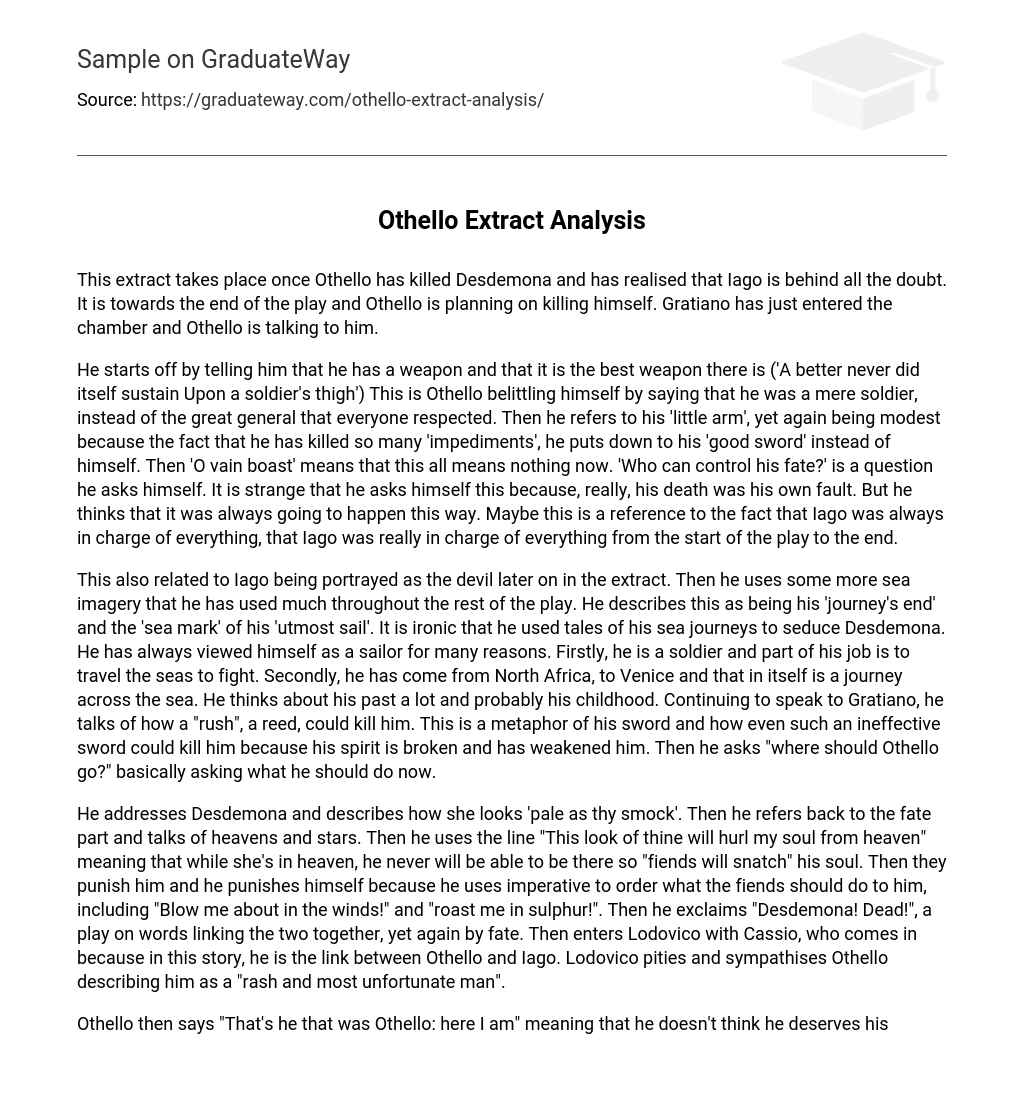This passage occurs after Othello has tragically ended Desdemona’s life and uncovered Iago’s malevolent scheme. This moment takes place near the conclusion of the play, where Othello contemplates taking his own life. Gratiano, recently entering the chamber, engages in conversation with Othello.
In the beginning, Othello asserts that he possesses the ultimate weapon (‘A better never did itself sustain Upon a soldier’s thigh’), yet he humbles himself by referring to his role as a mere soldier rather than the respected general. Despite his countless victories over obstacles, he attributes his success to his sword rather than acknowledging his own abilities (‘good sword’, ‘little arm’). However, he dismisses these self-praise as vain boasting, acknowledging the unpredictable nature of fate (‘Who can control his fate?’). Although Othello blames himself for his own demise, he believes that his tragic fate was predestined. This notion possibly alludes to Iago’s omnipotent control over the events in the play from its inception to its conclusion.
In this passage, there is a connection between Iago being portrayed as the devil and his use of sea imagery throughout the play. He refers to this as his “journey’s end” and the “sea mark” of his “utmost sail”, which is ironic considering he used tales of his sea journeys to seduce Desdemona. Being a soldier, Iago often travels across the seas for battle. Additionally, his journey from North Africa to Venice is another example of his connection to the sea. Reflecting on his past and possibly his childhood, he shares with Gratiano how even a “rush”, or reed, could kill him, symbolizing the powerlessness of his sword since his spirit is broken. Finally, he poses the question of where Othello should go, essentially uncertain of what he should do next.
He speaks to Desdemona, describing her as pale as her dress. He then brings up the concept of fate and references the heavens and stars. He states that her appearance will prevent him from reaching heaven, causing fiends to take his soul. He desires punishment and commands the fiends to blow him in the wind and roast him in sulphur. He exclaims “Desdemona! Dead!”, connecting their fates once again. Lodovico enters with Cassio, who serves as a link between Othello and Iago. Lodovico feels pity and sympathy for Othello, describing him as a hasty and unfortunate man.
Othello declares that he no longer deserves his name, as it is associated with his honor and goodwill. Conversely, Lodovico, despite sympathizing with Othello, labels Iago a “viper” and “villain,” holding him solely responsible. Othello compares Iago to a fabled devil with goat-like feet but rejects this comparison, asserting that Iago is the devil himself without such feet. Othello wounds Iago, who sarcastically requests to be killed, sarcastically addressing him as “sir.” Othello maintains that dying is a form of happiness, expressing his sorrow over Desdemona. Still honoring what Othello once represented, Lodovico asks what will be said of him. Othello responds by stating that he should be remembered for his honor rather than the hatred that led to the murder.





